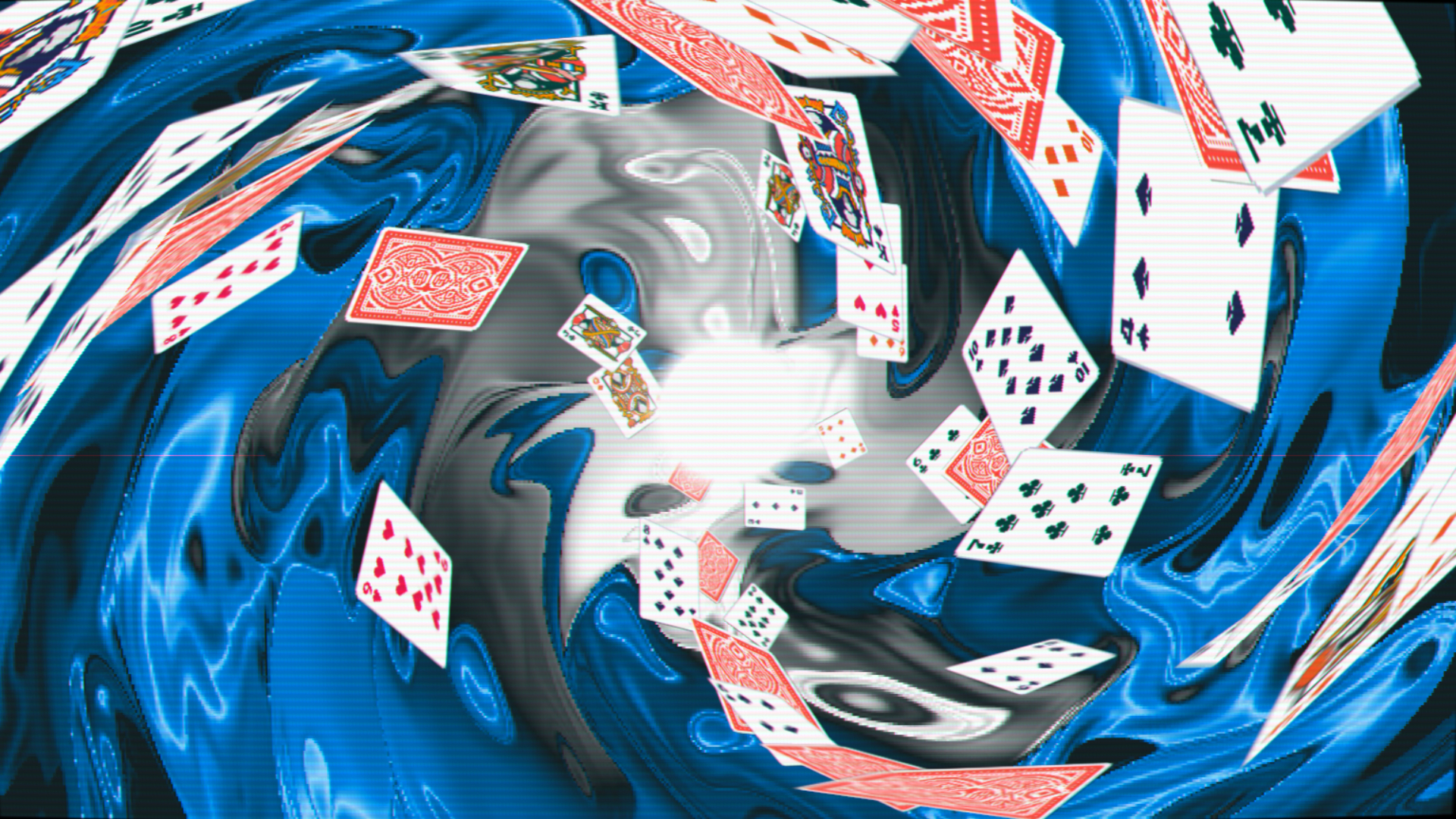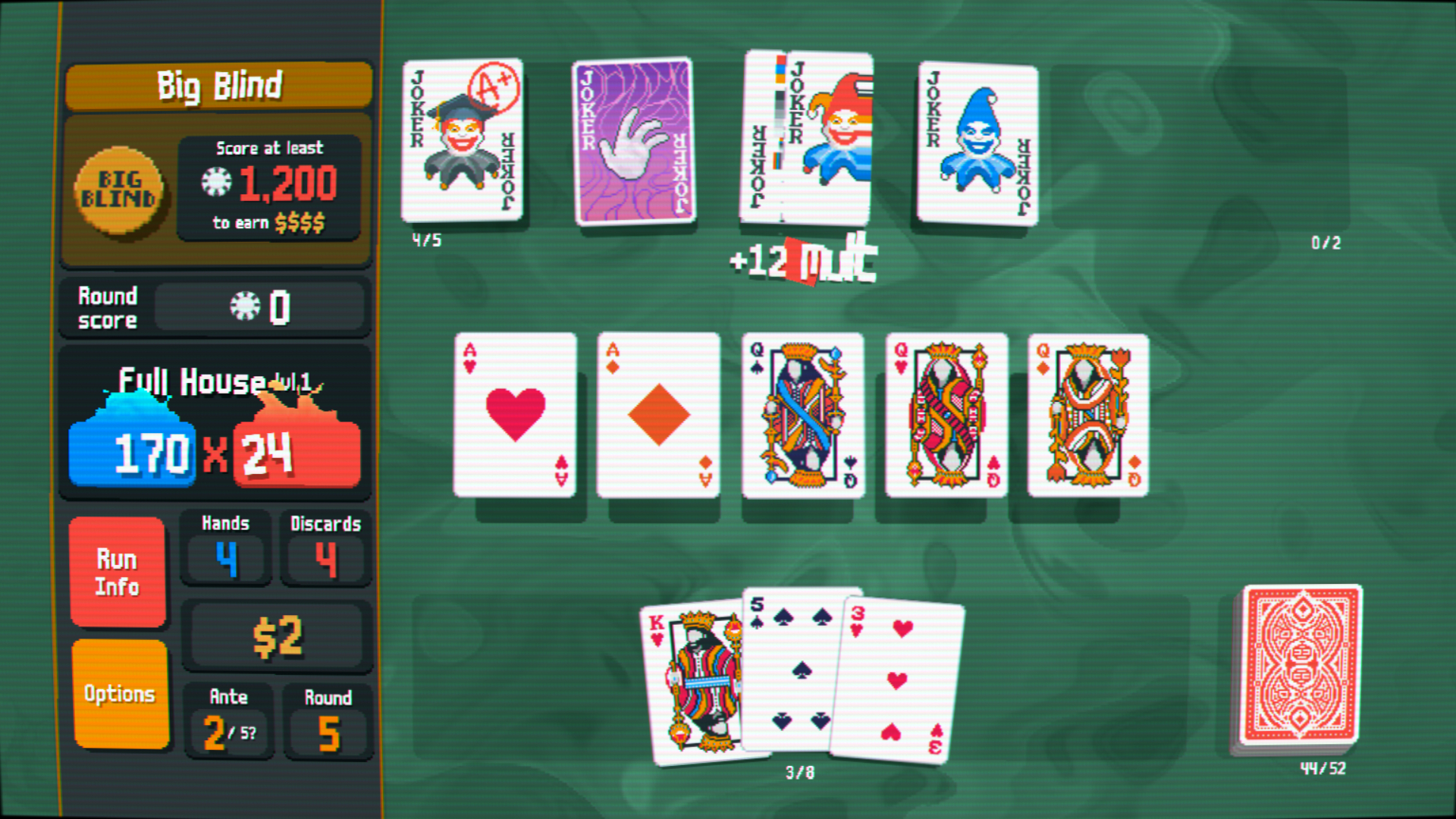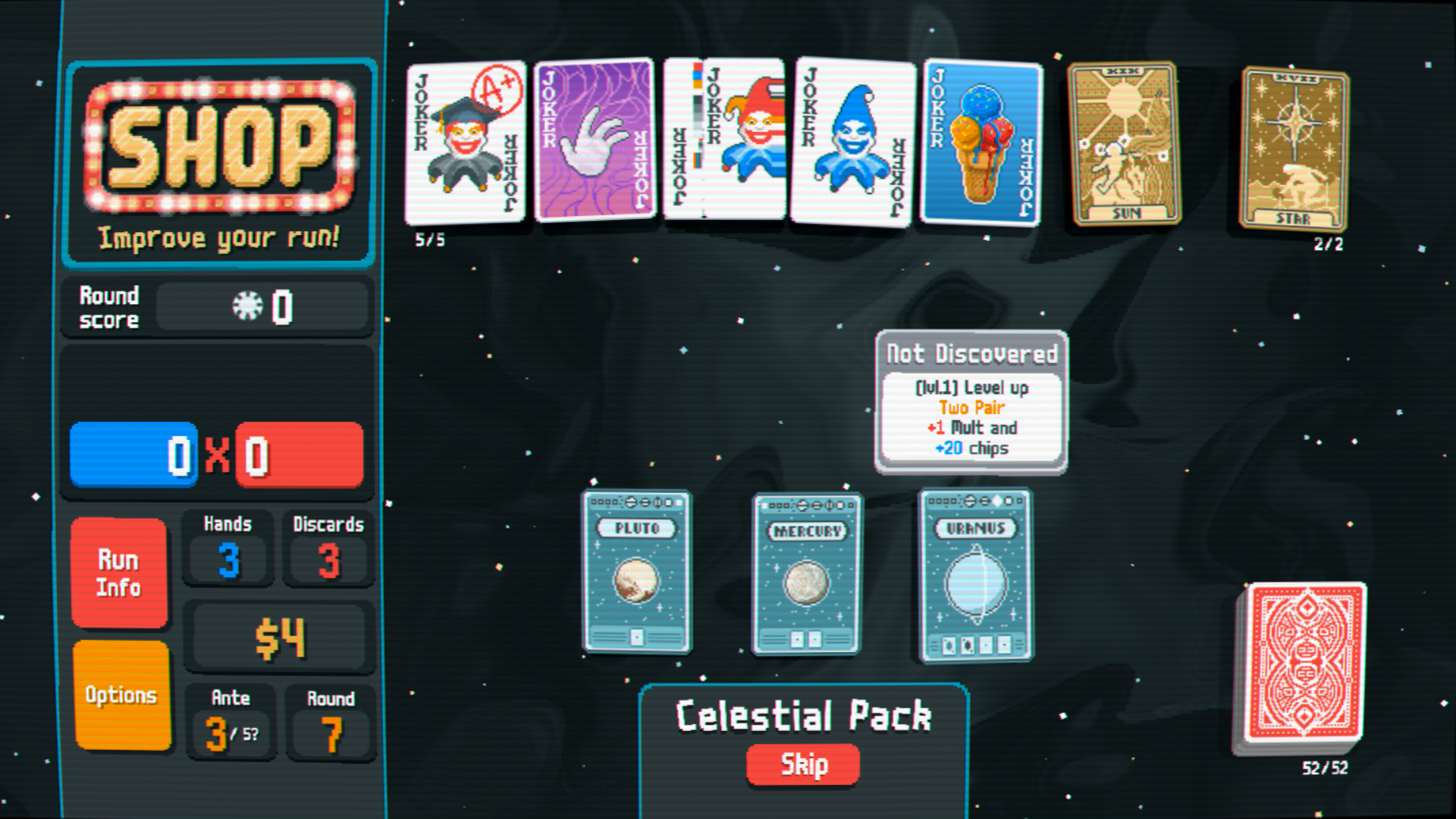
I love deckbuilders. I don’t have any children (at time of writing), but if I did, I would love my deckbuilders more. I’m not comfortable admitting how many hours I’ve spent slaying a certain spire. Odd, considering I’m actually proud to tell you that I’m coming up to 1000 hours in Monster Train. Yikes.
2023 has been a great year for deckbuilders. The terrific Cobalt Core introduced tactical positioning to the genre, which also positioned it high up my most played games this year. Astrea Six Sided Oracles replaced the decks with dice, which wasn’t exactly a killer PR move to make these games seem less nerdy (fun though). Wildfrost depicted the cutest climate apocalypse ever and was a blast to play. But none of these, nor any other game I paid good money for this year, has won me over like the demo for Balatro.
It’s a deckbuilder about making poker hands. Each blind (poker jargon for ‘round’) sees you up against the dealer, having to achieve a set score to win. You draw five cards at the start of each blind and can play four hands. Each playable hand has a set score and multiplier—e.g. a pair gives 10 points and a x 2 multiplier = 20 points. The value of the cards you played to make that hand is also applied. So a pair of 2’s would be 14 points x 2 = a pathetic 28 points (don’t play a pair of 2’s).
In the first blind you have to get at least 300 points to beat the dealer, a number that’s annoyingly a bit higher than 28. You can keep playing more common hands, like high cards (1 x 5 = lol) or two pairs (20 x 2 = better!), or use one of your three chances to discard and replace cards in the hopes of making a flush, straight, or other hand that could potentially win the blind in one smug move.
Fairly straightforward stuff, but what makes Balatro so brilliant is the twists it piles upon that solid core. Between each blind you have access to a shop where you can buy cards that level up hands. A pair can become far more powerful once you’ve levelled up its score and multiplier a few times. You can buy cards that change your deck, converting several to the same suit so flushes are easier to make, or giving certain cards multiplier bonuses, or even removing cards entirely. It’s rarely as straightforward as just picking and choosing the bonuses you want though. You’ll have to buy packs of random cards then only choose one to add to your deck, one of many gambles the game constantly asks you to make.
Best of all, you can buy joker cards and have up to five of these in constant play. One joker can add a x15 multiplier to your hands, as long as you only play three cards. Another suddenly makes some of the more ‘worthless’ cards, like your 3’s and 5’s, offer huge scores. These jokers have no respect for the stuffy rules of poker either. One lets you make flushes and straights with only four cards. Let us know how you get on when you pitch that at your next poker night.

You’re essentially trying to craft a deck of 52 that wins so consistently it would have you beaten to a pulp in a casino back alley, all while the chips required to win blinds get increasingly higher (you need to score 50,000 to beat the demo. 50,000!) Do you keep hoarding your winnings in the hopes of buying more powerful jokers that might arrive in the shop later? Do you focus on levelling up hands that are easier to make, hoping your payouts will rise as consistently as the chips required to win? Do you buy that random multiplier joker and pray the gambling Gods are smiling on you? It masters the art of every good deckbuilder, giving you a constant stream of tricky decisions, each one potentially game-changing.
I think that the discarding is the secret to Balatro’s success. Even my favourite games in this genre have runs that feel stubbornly preordained, where I’m constantly forced to make the best of a bad hand. Balatro, however, is constantly tempting you with the potential of discarding and redrawing something better. You get more money for the shop if you win a blind with hands left over, but there’s no reward for finishing without using your discards, so it clearly wants you to gamble. And like all institutions that want me to gamble, I’m sure it has my best interests at heart. Often I discard myself into an early grave, but the rush of successfully redrawing myself a straight flush reminds me why I play games in the first place. I am disturbingly close to watching a five-hour YouTube tutorial on how to predict poker hands. I am going to be an absolute treat this Christmas to anyone who makes the mistake of asking what I’ve been up to.

The best part? My game of the year isn’t even out yet. But the demo on Steam already shows off so much of what makes Balatro brilliant. Its trippy intro animation that looks like someone just dropped a deck of cards down the opening sequence of Doctor Who. The music that’s way more eerie than it needs to be. The way Joker cards call you out for bluffing when you fail a run. The odd filter that occasionally makes the game look like it’s playing on a slightly cursed television—like you’re channel-hopping on too little sleep and have stumbled across a poker game that isn’t quite right.
If you have an even passing interest in deckbuilders, you need to play this. Oh, and in case you were curious about that title, a "Balatro" is an ancient Roman term for "professional jester or buffoon". As in "you’d have to be a real Balatro to not play this game". Harsh but true!







